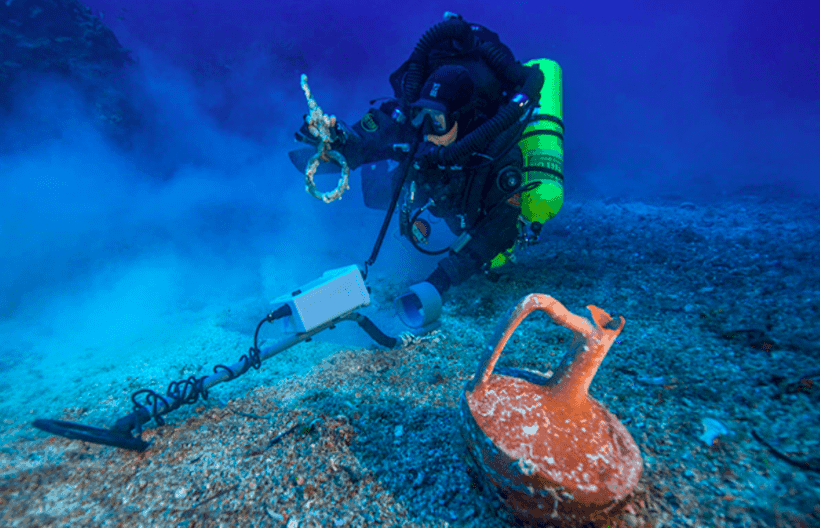
The most important archaeological discoveries for 2016 include two Greek finds according to the prestigious Archaeology magazine; the Phaleron Delta necropolis where the remains of 80 men shackled together at the wrists in a mass grave and the first human remains to be found at the Antikythera shipwreck in almost 40 years.
According to the most recent osteological studies on the human remains at the Phaleron Delta necropolis, the majority of the men were between 20 and 30 years old, although four were much younger, and that all 80 had been killed in the same manner—with a fatal blow to the head.
The discovery of two small vases buried with them has allowed archaeologists to date the grave to the mid-to-late seventh century B.C., suggesting to project director Stella Chrysoulaki that the men were executed in the course of one of these attempts to gain political primacy.
“For the first time,” Chrysoulaki says, “we can illustrate historical events that took place during the struggle between aristocrats in the seventh century and led, through a long process, to the establishment of a democratic regime in the city of Athens.

”The Antikythera shipwreck (circa 65 B.C.) is the ancient world’s largest, richest, and perhaps most famous wreck. Discovered in 1900 off the Greek island of Antikythera, the site has yielded hundreds of treasures, including bronze and marble statues, as well as the Antikythera Mechanism, often referred to as the world’s oldest computer. However, an important new discovery was made in summer 2016 when an international team recovered a human skeleton there.
The remains, which include parts of the cranium, jaw, teeth, ribs, and long bones of the arms and legs, most likely belonged to a young male. Evidence of at least four other individuals had previously been found at the site, but the newly discovered remains are the first to be uncovered in almost 40 years—and during the age of DNA analysis. According to ancient DNA expert Hannes Schroeder, the discovery might provide the first opportunity to examine the genetics of an ancient mariner. “Human remains from ancient shipwrecks are extremely uncommon,” he says. “DNA analyses can potentially provide fascinating new information on the crew’s genetic ancestry and geographic origins,’’ concludes Chrysoulaki.

